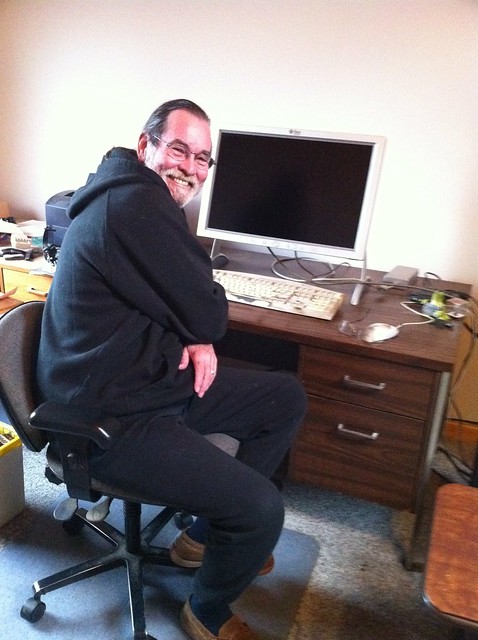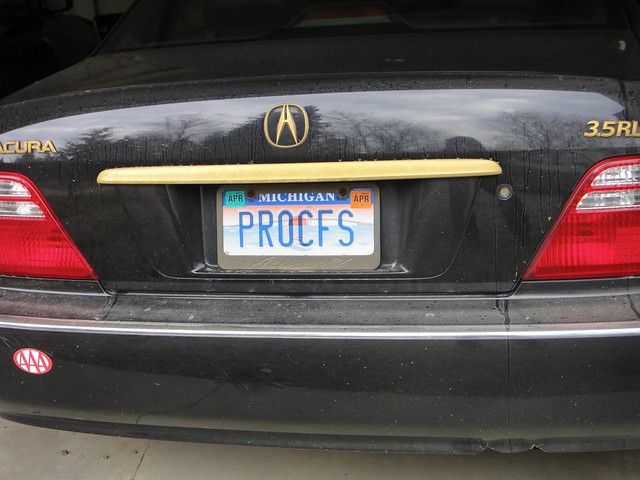Roger joined Sun Microsystems in 1990 to work on the merge of AT&T's SVr3 and SunOS4.x to create UNIX SVr4 (a.k.a. Solaris 2.0 at Sun). He then concerned himself with the definition, exposure, and maintenance of the Solaris/UNIX process model, with emphasis on visibility into and support for debugging application programs:
From 1990-1993 he extended the ioctl-based /proc interface from being a single-threaded process model to being a multi-threaded process model with lightweight processes within the traditional process.
In Solaris 8 (1997-1998) Roger created the alternate libthread as a better support library for multi-threading. It is a one-to-one thread/lwp interface rather than the old N-to-M thread/lwp interface implemented in the original Solaris libthread. The alternate libthread become the only threading library in Solaris 9.
In Solaris 10 Roger created the unified process model in which all threading support is folded into libc. All processes became multi-threaded, in principle, eliminating the confusion of having three separate process models as was the case previously. Eliminated static linking of the system libraries; all processes are dynamically linked.
Roger then implemented system changes to enable Solaris 11 to conform to the latest POSIX standard (UNIX V7).
[Solaris 12 work redacted, but let it be known, he's done a lot.]
Meem (Peter Memishian) shared the following (Note: the below source comment can be viewed freely online in context):What I learned from Roger:
- You can be brilliant and kind.
- "If you don't have time to do it right, when will you have time to do it over?"
- You can be creative and productive for as long as you want.
- "When you are about to do a putback, if your heart is not pounding, palms not sweating, you shouldn't be doing this (be a kernel engineer) any more."
Tim Foster did an in memoriam integration into the ON gate for Roger. He will live in Solaris forevermore.Indeed. Today I lost one of my professional heroes. As those on PSARC well know, Roger cast a shadow far beyond his truly immense technical contributions to UNIX (and Solaris in particular). His curmudgeonly outwardness belied a remarkably gentle and caring internal character. Despite having forgotten more about UNIX than most of us could ever know, he was as grounded as they come, with a unique style that left indelible memories on so many of us, and altered the DNA of our engineering culture. Speaking personally, I've always admired those who prioritize doing over talking. Roger was one who quietly moved mountains -- as Bryan captured in the approval of Roger's RTI which put the final nail in the coffin of the M-to-N threading model: http://dtrace.org/resources/bmc/rti.txt And of course, Roger wasn't afraid to speak his mind when necessary -- as captured in this gem above cv_wait_stop(): /* * Same as cv_wait(), but wakes up (after wakeup_time milliseconds) to check * for requests to stop, like cv_wait_sig() but without dealing with signals. * This is a horrible kludge. It is evil. It is vile. It is swill. * If your code has to call this function then your code is the same. */ Finally, I'd like to share this mail from many moons ago on the history of the name "truss", which embodied the soul that he infused into his work. | From: "Roger A. Faulkner" <Roger.Faulkner@Eng> | To: meem@Eng | Subject: Re: curiosity: truss? | Date: Wed, 27 Jan 1999 23:34:47 -0800 (PST) | | For your edification, this is the geneaology of the name "truss" | (taken from some mail dated Sep 26, 1988) | This was when Ron Gomes and I were jointly developing the first | /proc for SVR4 at USL. | ----------------------------------------------------------------- | | We considered, and discarded, several alternative names for truss(1), | including "trace", before settling on "truss". The objection to | "trace" is that it's too generic a term and shouldn't be co-opted | for a specific use like this; there are lots of other things that | one might trace. Among the alternate names we considered were: | "ptrace" (but this incorrectly implies a connection with ptrace(2)), | "strace" (but this is already used for some streams tracing thing), | "tss" for "trace syscalls and signals" (but this is certainly bad), | "sst" a permutation of "tss" (but this implies it's blinding fast), | "trss" another variation of "tss" (but this is unpronouncable). | Adding the obvious vowel gave us "truss", which can be construed | to mean "TRace Unix Syscalls and Signals". | | "truss" seems to have the right combination of mnemonic value | and disrespect for authority ("If your program doesn't work, put | it in a truss.") It conjures up a mental image which is fairly | accurate, considering what the program does. Rest in Peace, Roger. May all your RTIs be promptly approved.
Below are some tweets I saw passing by.... Please share your own thoughts below, or send to me and I will share them here.
Do you have any memories of raf? Please share in the comments or in your own space.
We are collecting pictures for his family and friends in the Roger Flickr group. Please add your own there.
Don't worry Roger, someone will approve your RTI.




